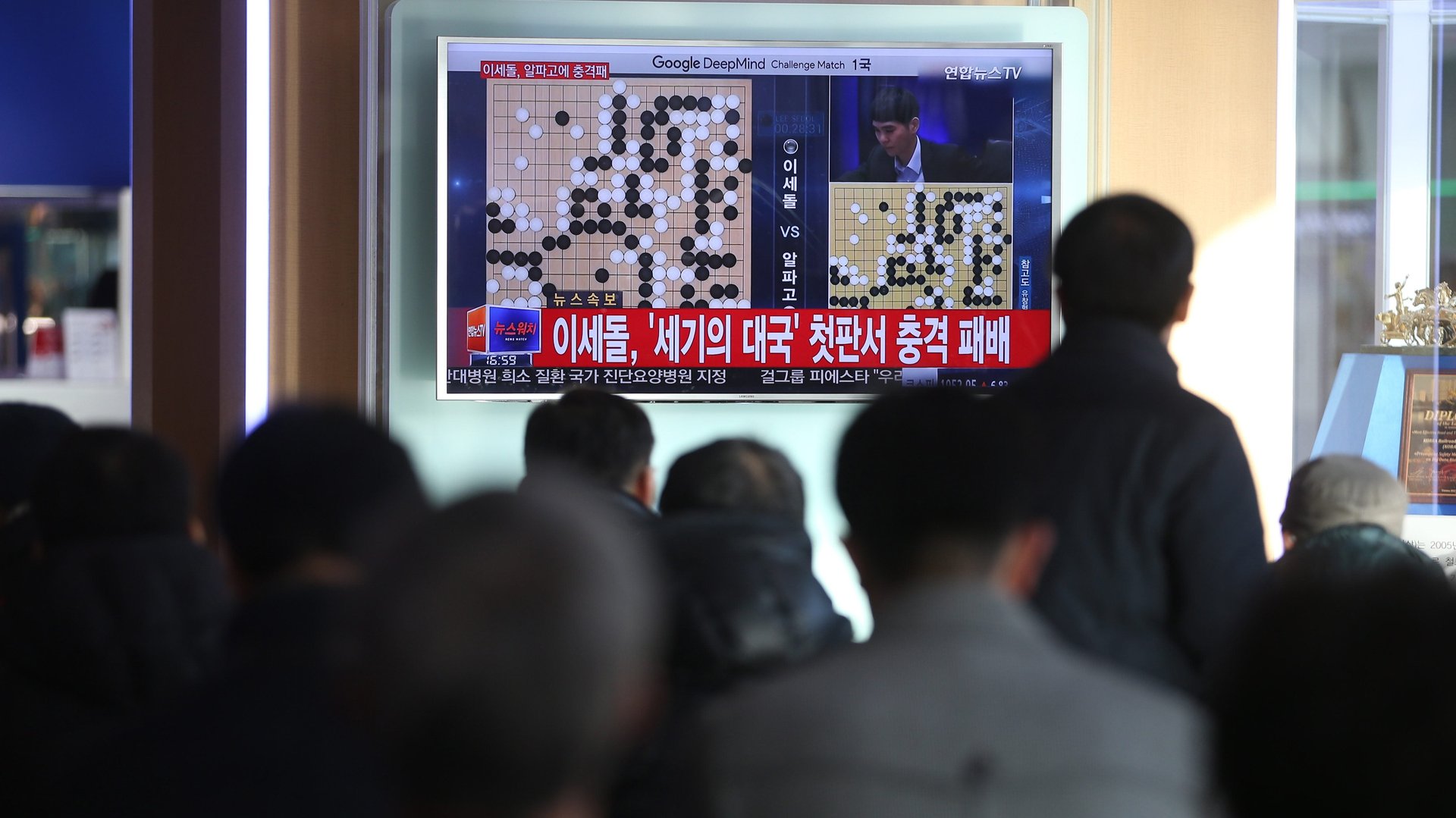Google’s Alpha Go now has a serious game-playing rival from Tencent
The man-versus-machine battle in the complex board game Go had become a one-horse race, thanks to Google’s artificial intelligence program Alpha Go. Last year the AI program made history by taking down Lee Sedol, one of the world’s best Go players. This January, it re-emerged even stronger, racking up 60 wins and zero losses against more big names in the sport’s professional circle.


The man-versus-machine battle in the complex board game Go had become a one-horse race, thanks to Google’s artificial intelligence program Alpha Go. Last year the AI program made history by taking down Lee Sedol, one of the world’s best Go players. This January, it re-emerged even stronger, racking up 60 wins and zero losses against more big names in the sport’s professional circle.
The question that really matters, it turns out, is not which human can match up against Alpha Go, but rather which AI.
Now, we may have the answer: Jueyi, or FineArt, a Go AI developed by Chinese tech giant Tencent, just won the championship title (link in Chinese) in the 10th Computer Go UEC Cup in Japan over the weekend. FineArt won all 11 games, beating the runner-up, Japan’s Deep Zen Go, twice in both the qualifying stage and the final. Though Alpha Go was absent, the annual contest attracted 30 of the world’s best AI Go-playing software systems such as Facebook’s Darkforest and France’s Crazy Stone.
The Tencent AI Lab began to develop its own Go-playing algorithm last March, around the time when Alpha Go swept Korea’s Lee in a 4-1 victory, the first emphatic proof that AI could play the millennia-old board game at a level no human has attained. In August, Tencent’s developers put the algorithm onto Chinese online board-game platform foxwq.com to test its skills against professional Go players. After switching names several times, the AI player settled on “FineArt,” or 绝艺, a phrase picked up from an ancient Chinese poem.
Ke Jie, the reigning top-ranked Go player, appears to have become something of a benchmark for his robot counterparts. In January, Ke lost three games during Alpha Go’s test on two Chinese board-game sites. At the time the 19-year-old said he still had “one last move” to defeat the AI. He is likely to take on AlphaGo for a fourth time in April, according to Chinese media reports.
FineArts first encountered Ke on foxwq.com during November, taking a win and a loss. But after an update in February, the algorithm has since won 10 straight games (link in Chinese) against the world’s No. 1 player.
As Tencent’s tech blog explains (link in Chinese), FineArts works in a similar way to AlphaGo. Both AIs comprise two computer systems modeled on the human brain, which can be trained on large data sets. One part of the system, the “policy network,” predicts which of the possible moves are the likeliest to be played. The other, the “value network,” then evaluates which of those is likeliest to win.
Quartz has reached out to both the Tencent AI Lab and Google’s DeepMind team behind AlphaGo to ask whether a match-up is planned for the near future, but hasn’t heard back yet. (Update: A spokesman from DeepMind says the team doesn’t have any comment right now.)